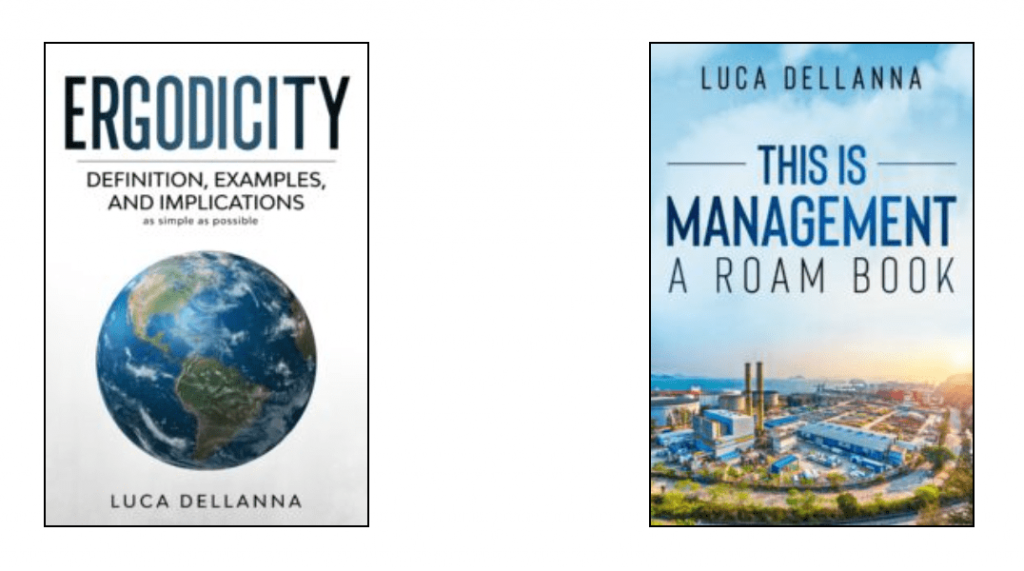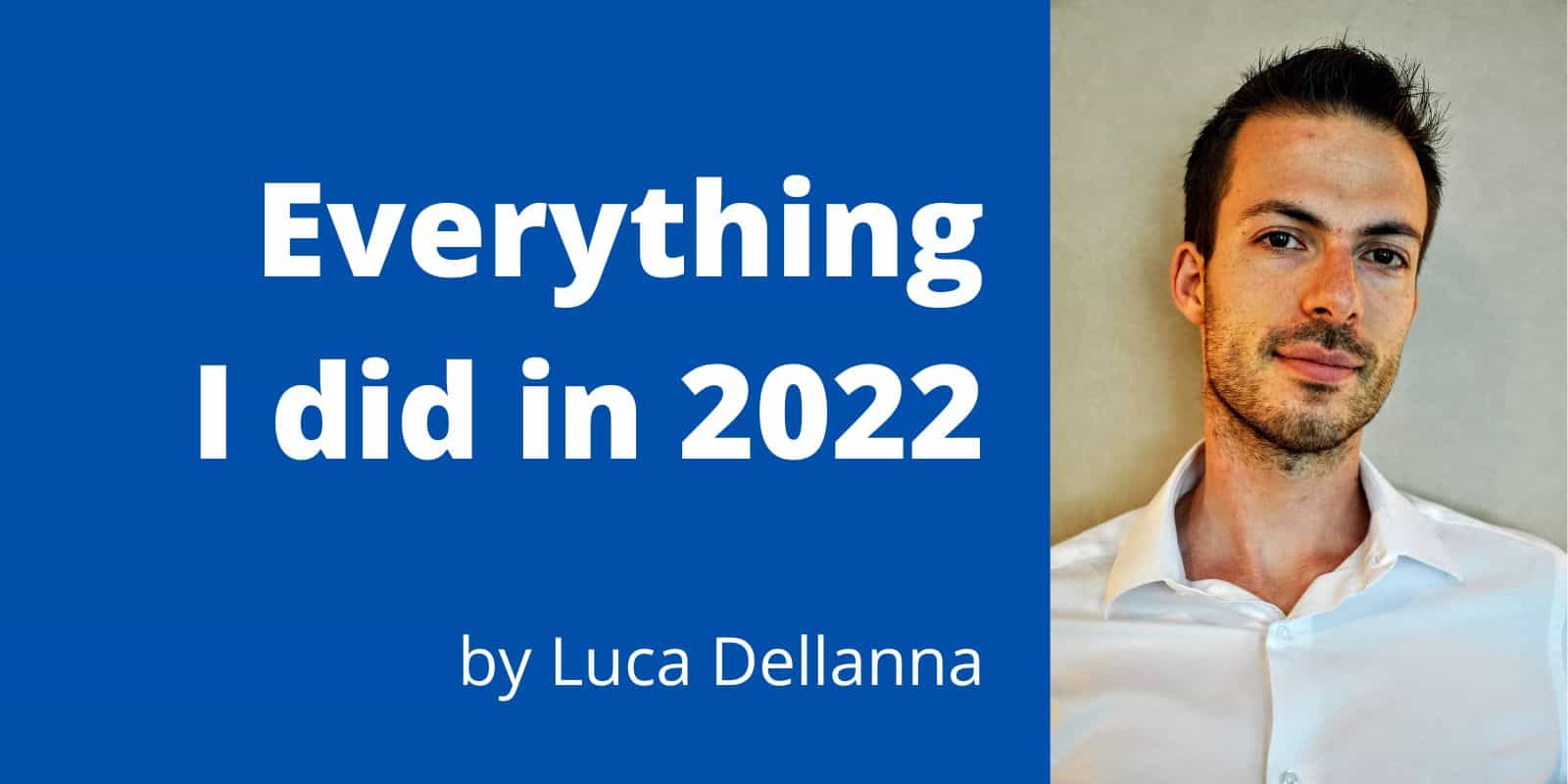A list of all podcasts, speeches, blog posts, projects, Twitter threads, and books published by Luca Dellanna in 2022.
One year of Roam Books
One year ago today, I published the first Roam Book ever – a new format I pioneered, that does much more than a book. One year has passed, more rBooks got published, and the format evolved.
To celebrate this recurrence, I’ll talk about the format, my vision for it, and – at the bottom – a special anniversary discount in case you wanted to try the format.
What are Roam Books?
Roam Books, or rBooks for short, are a book format published using Roam Research, an app that enables you to build personal wikipedias of your knowledge, and that allows for nonlinear exploration.
With rBooks, you do not just read a book file, like you would on a Kindle. Instead, you import its contents into your knowledge base, and they automatically link with past and future notes you’ll have taken. Let me explain with an example.
Let’s say that you buy my rBook “This is Management.” When you open it, you’ll see a table of contents. You start reading the first chapter. Suddenly, you see a mention of “Bright Spot Analysis.” Just like Wikipedia, you can click the link and jump to a page that tells you more on the subject. Unlike Wikipedia, you can edit the text, highlight it, and take notes.
But there’s more.
Let’s say that you open your notes for next week, and in your agenda for Monday there are “Weekly Team Meetings.” That’s the topic of a chapter of my book, and the software will suggest in your notes a link to the homonymous chapter of my book. This enables you to check before the team meeting your notes and my chapter on how to run effective ones.
Roam Books are at the intersection of books, note-taking, and curated wikipedias. They aren’t the best book format for all use cases, but they definitely are the best book format for some use cases.
You can read more about rBooks, and see some screenshots and videos, on roam-books.com
Of course, rBooks come with limitations. For example, they require an active RoamResearch account, and their features might represent a distraction for a reader who just wants to consume an author’s lines as he or she wrote them. However, for other types of readers – those who want to read on their terms, taking notes, and making connections, rBooks are a game-changer.
The present and future of rBooks
I published the first rBook ever in November 2020. It was a huge success. A reader even wrote, “I’m already questioning whether I’ll want to read another non-fiction book not published in rBook format.” Since then, I helped the Roam community to bring more works in this format. I collaborated with Tiago Forte to bring his ebook into Roam format, and began answering questions and having online meetings with other authors. To help more people at scale, I published a course on publishing rBooks. I authored my second rBook, and a few other authors started working on theirs.
I am bullish on the future of Roam Books.
Just like eBooks didn’t fully supplant physical books but provided an alternative which is better for some use cases, I believe that rBooks will evolve not into a substitute for books but into a game changer for some applications. Probably, it will be applications that didn’t exist before rBooks, but got created by them.
One example would be the creation and curation of knowledge repositories about specific topics, with a focus not just on consumption (static pages are great for that) but about utilization – hence the need for content that you can edit for signal, that sits not on someone else’s database but on yours, and that can link not with the web but with your other notes.
I’m sure that more applications will be discovered by the community of rBook authors and of rBook readers. It’s the early days, and we are the pioneers.
Celebrating the anniversary
If you haven’t yet, this is a great time to read your first rBook. To celebrate the one-year anniversary, I’m offering a temporary 33% discount on both of my rBooks (using these two links: “Ergodicity” and “This is Management”), together with the usual “30-days satisfied or reimbursed” guarantee.
Let me know what you think of them, and what use cases you would have for them.



